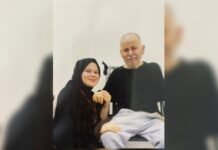The Ankara 19th Administrative Court has ruled in favor of a former civil servant who was dismissed by a government decree for donating money to a charity organization linked to the Gülen movement.
The ruling was shared on Twitter by lawyer Mustafa Özkan on Friday. Özkan’s client, whose name was not disclosed, had been dismissed from his job for donating money to the Kimse Yok Mu charity organization, which was closed down by a government decree after a failed coup in July 2016.
Turkey’s Justice and Development Party (AKP) government launched a war against the Gülen movement, a worldwide civic initiative inspired by the ideas of Muslim cleric Fethullah Gülen, after the corruption investigations of December 17-25, 2013 that implicated then-prime minister and current President Recep Tayyip Erdoğan’s family members and inner circle.
Dismissing the investigations as a Gülenist coup and conspiracy, the AKP government designated the movement as a terrorist organization and began to target its members. They intensified the crackdown on the movement following the coup attempt on July 15, 2016 that they accused Gülen of masterminding. Gülen and the movement strongly deny involvement in the abortive putsch or any terrorist activity.
The Turkish government considered donating money to Gülen-affiliated charity organizations as a benchmark for identifying and arresting tens of thousands alleged members of the movement on charges of membership in a terrorist organization.
However, according to the ruling such a donation could not be regarded as evidence of a person’s affiliation with the movement or terrorist activity. It added that the person should be reinstated to their job and compensated for the time they were unable to work.
Following the failed coup in 2016, the Turkish government declared a state of emergency and carried out a massive purge of state institutions under the pretext of an anti-coup fight. More than 130,000 public servants, including 4,156 judges and prosecutors, as well as 29,444 members of the armed forces, were summarily removed from their jobs for alleged membership in or relationships with “terrorist organizations” by emergency decree-laws subject to neither judicial nor parliamentary scrutiny.
Former public servants were not only fired from their jobs; they were also banned from working again in the public sector and getting a passport. The government also made it difficult for them to work formally in the private sector. Notes were put on the social security database about dismissed public servants to deter potential employers.















